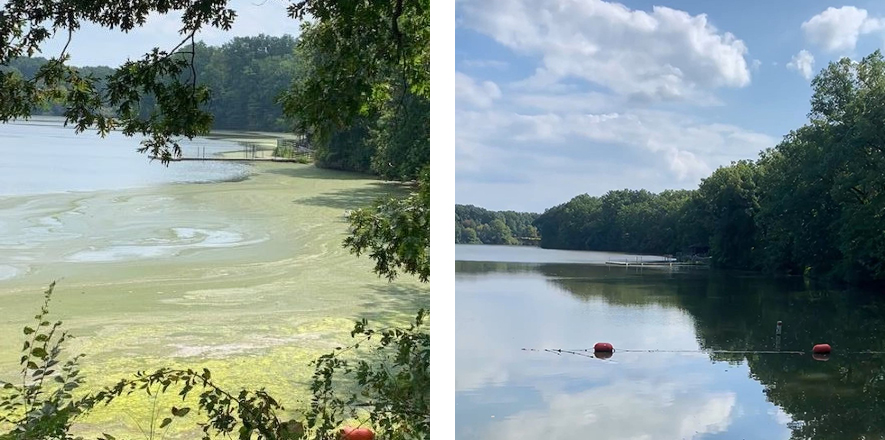A new research program funded by the U.S. Army Corps of Engineers will determine the efficacy of nanobubble ozone technology (NBOT) to control cyanobacteria and their toxins in Ohio’s Grand Lake in the Maumee River watershed. For the last several years, NCCOS scientists and their collaborators have been investigating NBOT and demonstrating its ability to mitigate freshwater algae and microbes. The new research program seeks to further advance NBOT’s potential as a tool to combat harmful algal blooms.
The method uses nanobubbles — bubbles smaller than the width of a single human hair — to aerate water bodies. Unlike ordinary bubbles that rise and burst at the surface of the water, nanobubbles implode under the pressure of the water, releasing oxygen and ozone that help dissolve harmful algae, their toxins, and other contaminants.
The new research program will establish application parameters, measure transformation of nutrients, and determine the potential toxicity of NBOT on non-target organisms. The program includes several state and federal partners and advisors, including NCCOS, Ohio EPA, the Ohio Department of Natural Resources, U.S. EPA, Ohio State University, and local lake managers.

Additional Resources:
